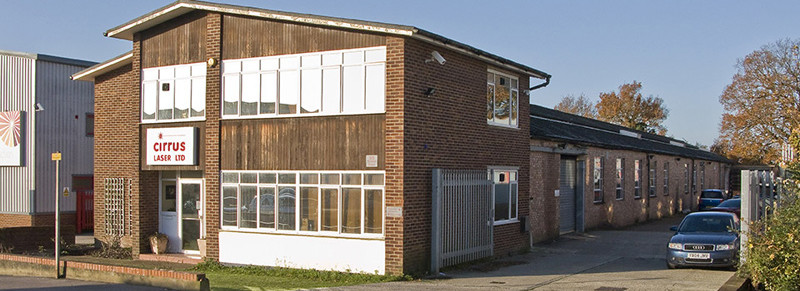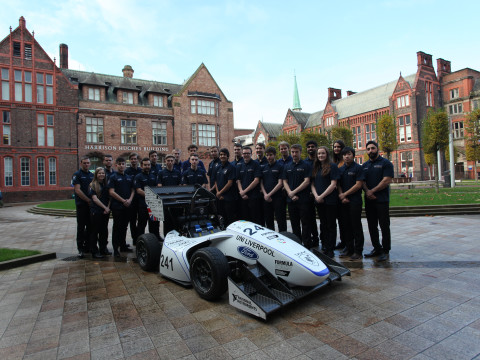Crash Test Students
28th February 2017
Cirrus Laser have been sponsoring the University of Liverpool Motorsport team for a number of years, and we are continuing this for the 2016/17 academic year.
The University of Liverpool Motorsport team comprises around 30 students who design and build a new single seat race car every year. It is then used to compete internationally against universities from across the world at Silverstone in July (www.formulastudent.com). In recent years performance has been good, last year securing 3rd best UK team and 15th overall.
The car is governed by strict rules, especially safety concerns such as impact testing. With the help of Cirrus Laser this year the team has been developing a new impact attenuator which is bolted to the front of the car to mitigate against possible crashes. The impact attenuator must be capable of absorbing 9350 J of energy in a frontal impact. Specifically, this energy must be absorbed with a maximum peak deceleration of 40g, and an average deceleration of 20g. With the car this year being the team’s first carbon fibre composite monocoque this has meant a redesign.
Cirrus Laser cut all the parts on their new Trumpf 5030fiber solid state laser for the construction of both a potential ‘all aluminium’ design and a ‘foam with intrusion plate’ design. This design features a main pyramid structure, manufactured using laser cut 3mm aluminium sheet. Key to this design is the top mounted tube, which is intended to act as an initiator to crumpling in the main pyramid structure.
A Rohacell based foam impact attenuator, mounted on 3mm sheet aluminium processed by Cirrus Laser. The foam design is pyramid shaped, to spread the applied force across a greater area on the anti-intrusion plate.
A video of previous Impact Attenuate testing completed by the team can be found in the link below:
The Aluminium IA reached a peak value of 15.9g, and a mean value of 11.9g. Whilst the Foam IA reached a peak value of 11.9g and a mean value of 9.7g. Therefore both impact attenuators absorbed the required amount of energy, within the required deceleration parameters. The team have decided to progress with the Foam IA, as this design is easier to manufacture and 1.2kg lighter than the Aluminium design.
"The entire team would like to thank Cirrus Laser for the continued support of the project, and producing the sheet metal required for all Impact attenuators tested" said Jack Tasker, ULM Deputy Team Leader.
This ultimately yielded a functioning and rules passing Impact Attenuator, and a great educational experience for all students involved.
A series of photos of the team and components of the car during the crash testing.
News Archive
ISO 9001: 2015 Certified


